How ancient mystical beliefs inspired a 20th-century classic
On 29 September 2018, Professor Brian Cox joins forces with the BBC Symphony Orchestra and Radio 3 to mark the centenary of Holst’s The Planets, a piece of music that for some defines the sound of space.
Prof Cox will use cutting-edge NASA technology to delve into the latest science behind our knowledge of the solar system. But Holst’s original inspiration for The Planets was altogether more curious...
It began in Majorca.
In 1913, 39-year-old Gustav Holst travelled to Spain for a boys’ holiday. With him were two fellow composers, Balfour Gardiner and Arnold Bax, plus Arnold’s brother Clifford. Early on in their train journey through the continent, Holst mentioned that he had acquired a strange new hobby.

“We occupied the four corners of a carriage,” Clifford wrote later, “and while Gardiner was mastering the enigmas of a Spanish timetable, and my brother remembering all the necessary objects that he had forgotten to pack, Holst informed me that he had just become interested in astrology, and on such a congenial topic I discoursed at length.”
Astrology (not to be confused with astronomy) is an ancient tradition that studies celestial events, like the movement of the planets, in order to predict human events and behaviour. Holst’s interest in the subject had already led him to read a slim volume entitled “What is the horoscope and how is it cast?” by the popular astrologer Alan Leo – and Clifford Bax turned out to be quite the authority on horoscopes. He and Holst discussed astrology animatedly for the rest of the holiday, much to their companions’ distress.
Holst was inspired and the very next year began work on The Planets, his most popular work. It was divided into seven movements, each one named after a planet in the solar system (as they were known at the time) and embodying that planet’s character, as defined by Alan Leo’s astrological teachings.
Alan Leo – AKA “the father of modern astrology” – was a fascinating character.
Over the course of his career, he dabbled in many esoteric practices that were considered unusual at the time, from vegetarianism to numerology and theosophy. But his real passion was astrology. Leo was keen to rid the practice of its reputation for superstition. He even referred to astrology as “the science of tendencies”, arguing that horoscopes should be used as a basis for character analysis, rather than for predicting the future.
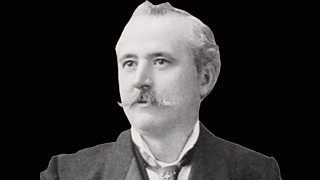
This did not, however, prevent Leo from becoming one of the last astrologers to be successfully prosecuted under the Witchcraft Act. In 1914 – the year that Holst wrote the music for Mars, Venus and Jupiter – Leo was accused of fortune-telling, a charge of which he was acquitted. In 1917, however (by which time Holst had completed Mercury, Saturn, Uranus and Jupiter), Leo was charged with “unlawfully pretending and professing to tell fortunes”. This time, he was convicted and fined. He died soon afterwards of a cerebral haemorrhage; history does not record whether he saw it coming.
So how seriously did Holst take astrology?
Was it a harmless hobby or a more deeply held belief? We know that he found astrology amusing enough to refer to it as his “pet vice”, and that he would continue to cast horoscopes for his friends throughout his life. He certainly found the astrological characters of the planets compelling enough to illustrate in music. 100 years on, The Planets remains Holst's best-known and best-loved work.

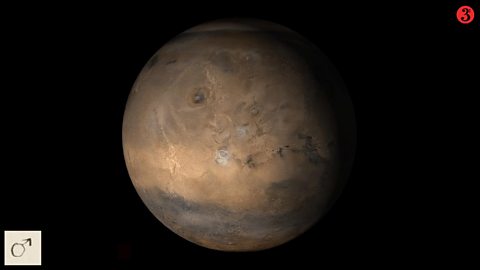
Mars, The Bringer Of War
This is a clip from a performance by the London Philharmonic Orchestra.
It’s tempting to think that the hammering rhythms of Mars were inspired by the mechanised slaughter of the First World War, but the war had barely begun when Holst first conceived this movement of The Planets.
Martial influence, in the early stage of its manifestation through the human creature, is always aggressive, combative, and assertive.Alan Leo, Mars: The War Lord (1915)
This movement is actually inspired by the astrological Mars, which for Alan Leo symbolised mankind’s “senses, or the animal instincts”.

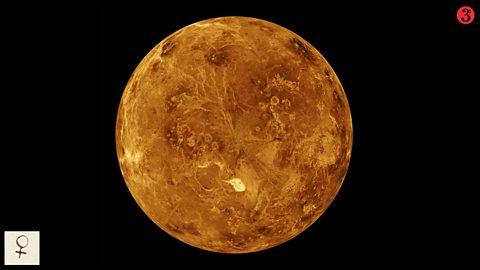
Venus, the Bringer of Peace
This is a clip from a performance by the French National Orchestra under Lorin Mazel.
In stark contrast to the bold and aggressive Mars, Venus is calm, reflective and beautiful.
Venus people are fond of music, the arts and everything beautiful and lovely, and have a very quick appreciation of all that is refined and beautiful, for Venus makes the mind appreciate beauty.Alan Leo, Astrology for All (1899)
A slower tempo, shimmering strings and the lyrical horn solo at the start “take you into a world of peace, which nothing seems able to disturb,” according to Holst’s colleague and editor, Valley Lasker.

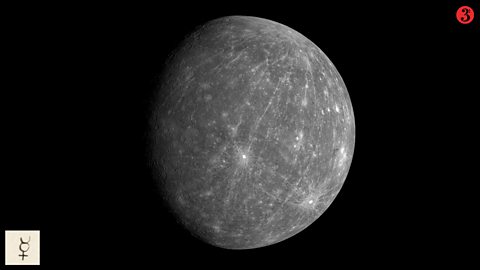
Mercury, the Winged Messenger
This is a clip from a performance by the London Philharmonic Orchestra (cond. Jurowski).
Mercury chiefly governs thought for its own sake, especially abstract thought, apart from any practical application. It may give much restlessness and love of change.Alan Leo, The Art of Synthesis (1912)
The quick, restless motion of this movement is achieved by setting two keys and two rhythms against each other. The result is a shifting, volatile music that seems to move at the speed of thought.

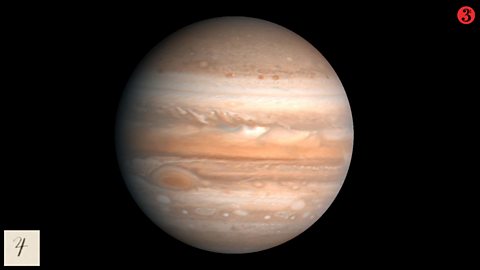
Jupiter, the Bringer of Jollity
This is a clip from a performance by the National Youth Orchestra of Great Britain.
Jupiter is one of The Planets’ most recognisable movements due to the later adaptation of its central tune as a hymn (Thaxted/I vow to thee my country).
Jupiter governs a combination of feeling and thought. It includes humanity, benevolence, compassion, honour, candour, good humour, and the higher moral and social qualities.Alan Leo, The Art of Synthesis (1912)
The movement has much more to it than just that one tune – and it’s all wonderfully jolly. Imogen Holst, the composer’s daughter, remembered watching “charwomen dancing in the aisles” at an early performance.

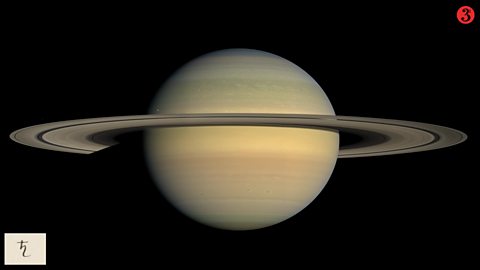
Saturn, the Bringer of Old Age
This is a clip from a performance by the BBC Philharmonic with conductor Andrew Davis.
Alan Leo’s description of people born under the influence of Saturn hardly makes them sound like the most dynamic of personalities.
The planet Saturn as lord and ruler makes the progress through life slow and steady. Those under its influence will be more plodding and persevering than brilliant and active.Alan Leo, What is the horoscope and how is it cast? (1902)
Yet Saturn was among Holst’s favourite movements from The Planets. Could it have been because Saturn was among the dominant planets in his own horoscope? This movement, with its slower speed and doleful bass chords, does suggest the advancing of old age, but ends in a more positive, serene mood.


Uranus, the Magician
This is a clip from a performance by the New Philharmonia Orchestra with Sir Adrian Boult
This magical movement starts with a brassy four-note motif from the trumpets, which is echoed by the trombones and timpani before the rest of orchestra emerge, led by the bassoons.
Uranus governs the Will in the highest degree, and it can be associated equally with thought, feeling, and action... It makes thought active, original, ingenious, and powerful.Alan Leo, The Art of Synthesis (1912)
It’s as if the magician of the movement’s title has uttered a spell, compelling the orchestra to dance.

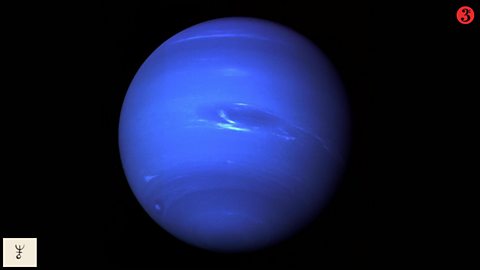
Neptune, the Mystic
This is a clip from a performance by the Rundfunkchor Berlin/Berlin Phiharmonic Orchestra
Neptune seems to be closely associated with feeling, emotion, and sensation. It controls thought through feeling, giving imagination, intuition, love of beauty, sympathy and psychic faculty.Alan Leo, The Art of Synthesis (1912)
Neptune is the only movement of The Planets to feature human voices, with an ethereal women’s chorus that fades into nothingness at the music’s end. It makes for an otherworldly, ghostly and thoroughly mystical end to The Planets.
The BBC Symphony Orchestra, conductor Ben Gernon and Professor Brian Cox celebrate The Planets with a fresh scientific and musical view of Holst’s vividly atmospheric masterpiece – 100 years to the day from its first performance. Listen on Radio 3 in Concert.
-
![]()
The Planets with Professor Brian Cox
The BBC Symphony Orchestra perform Holst's masterpiece on the 100th anniversary of its premiere.
-
![]()
Ten fantastic recordings of The Planets
David Owen Norris surveys recordings of Holst's popular orchestral suite in Building a Library.
-
![]()
In space, no-one can hear you sing
The universe has inspired musicians for hundreds of years and consequently we all know what space music sounds like. Or do we?
-
![]()
Music of the Spheres
Discover more about art and music inspired by celestial bodies.




